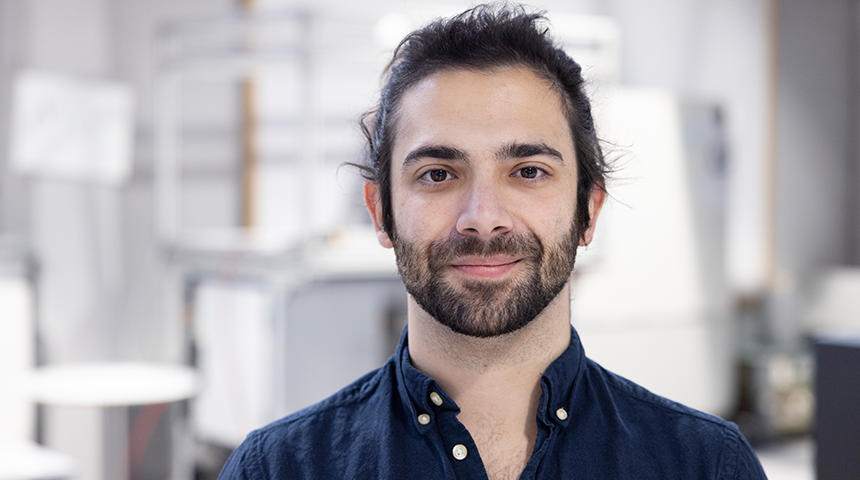New software creates better work environment and profitability in the industry

The industry is constantly seeking efficiency improvements for increased profitability. But how can this be done without risking people's health? Aitor Iriondo Pascual, a PhD student in Informatics at the University of Skövde, has developed software that can be used to maximise productivity and the well-being of workers at the same time.
In the pursuit of increased productivity, it is common to make optimisations within the industry, aiming for the best possible solution to one or more problems. Engineers create computer models of factories and try to find better ways to organise the factory and its machines to produce more at a lower cost. However, a crucial piece of the production puzzle is the people, and if production is not planned with consideration for them, it can eventually lead to work-related injuries.
"We want to live long and healthy lives"
The most common method to address potential risks for employees is to enlist the help of ergonomists who can review regulations and request changes in the design of workstations to ensure that no one is harmed. This process is time-consuming and poses a risk of reducing both productivity and employee well-being.
Therefore, in his research, Aitor Iriondo Pascual has developed software that enables the simultaneous analysis and optimisation of productivity and worker well-being.
"We want to live long and healthy lives. As the workforce ages, a sustainable work life is more important than ever. In my research, I include workers in the simulation and optimisation process. When a workstation is designed, both productivity and worker well-being are considered," says Aitor Iriondo Pascual.
Win-win when profitability is combined with good health
The software tool is called "Ergonomics in Production Platform" (EPP) and helps engineers design workstations that improve productivity and worker well-being. Companies can use the tool to generate workstation designs that consider their requirements automatically, and instead of manually testing different designs to obtain better designs, EPP can start generating them automatically and it learns during the process, offering better and better designs over time. The software has already been tested in real-life situations.
"This is a win-win situation, where companies obtain more productive workplaces, while workers have a more sustainable work-life. When developing EPP, the tool has been tested with Volvo Cars and Scania to optimise the design of different workstations such as welding workstations, assembly lines and logistics platforms," says Aitor Iriondo Pascual.
Aitor Iriondo Pascual's research is conducted within the research profile "Virtual Factories with Knowledge-Driven Optimization" (VF-KDO), an eight-year research profile focusing on strengthening competitiveness within the industry. The research within the profile aims to provide knowledge and innovation in areas such as virtual development and optimisation techniques.
